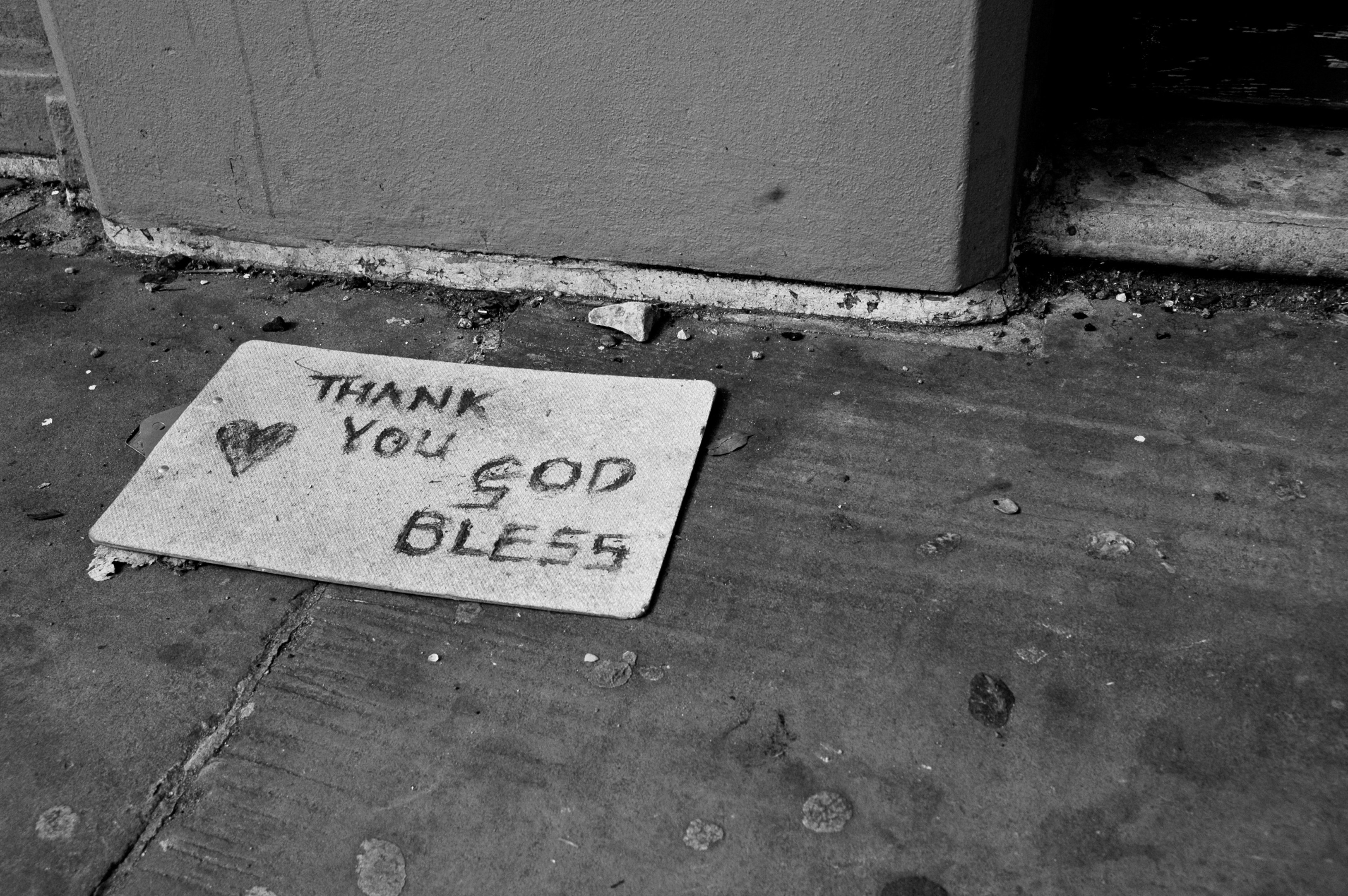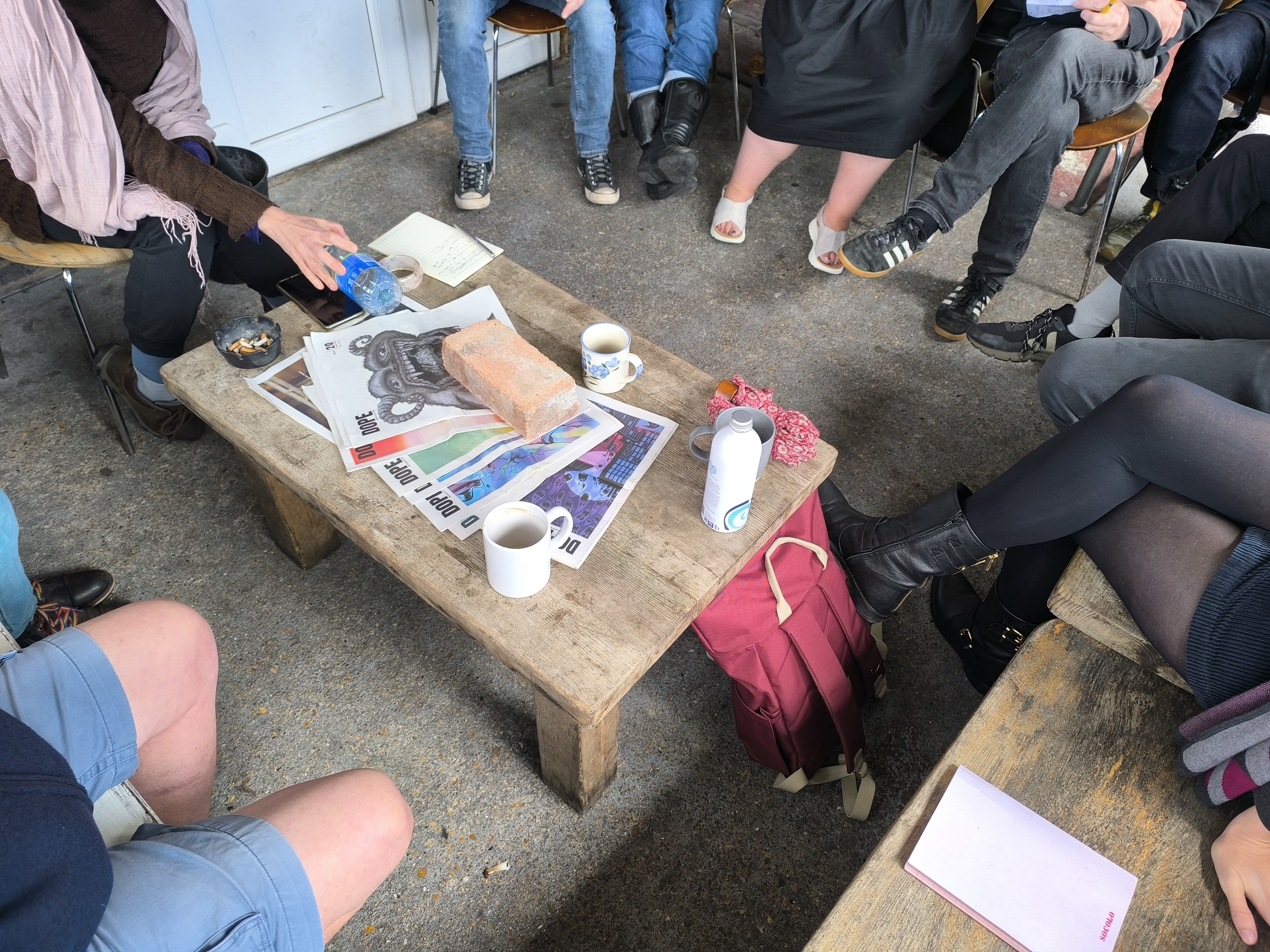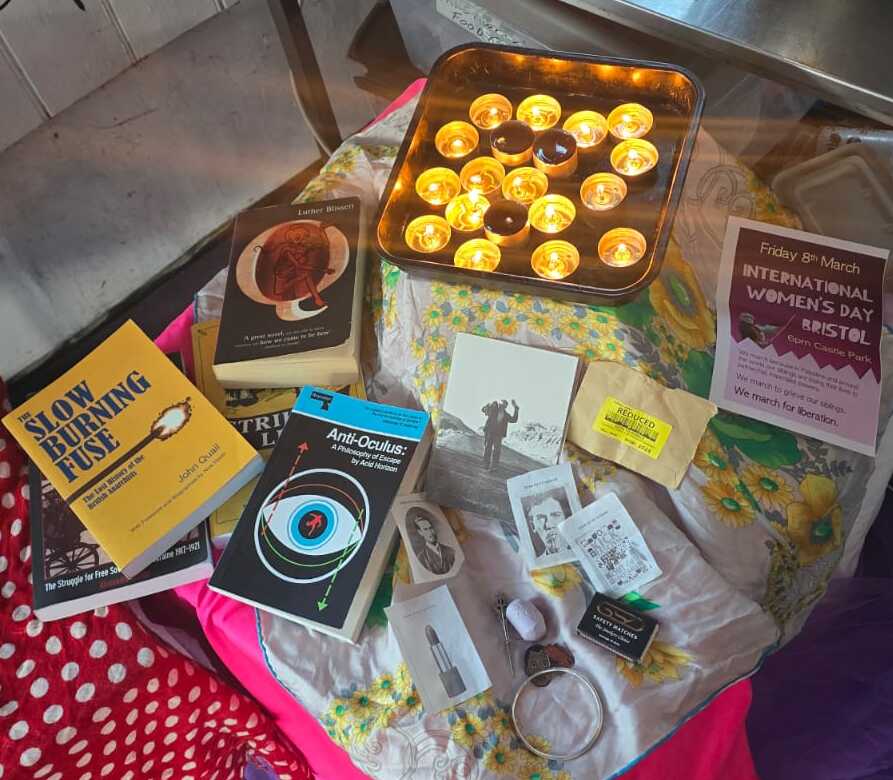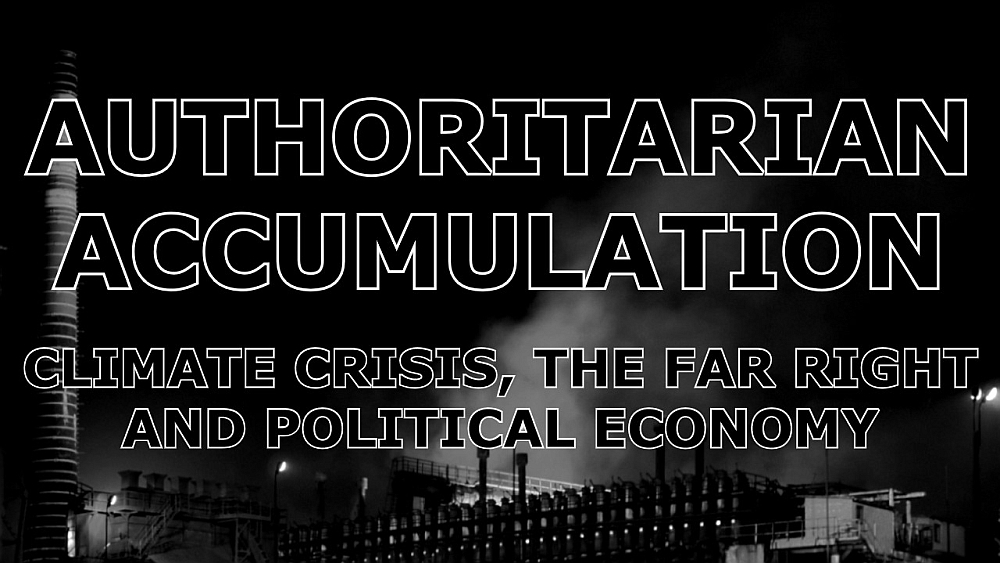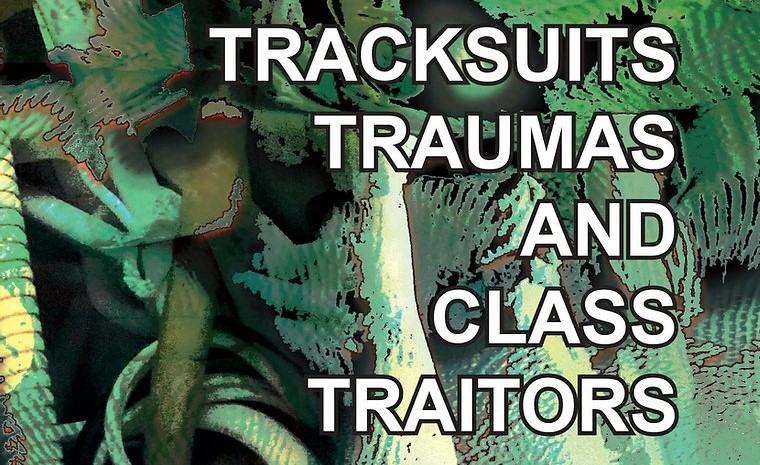Article written by DP Hunter.
Photo taken by Kelly O’Brien.
Some background on the author:
Hunter’s first twenty-five years depended upon the informal economy of capitalism- a shadow economy that takes place behind the facade of the capitalist free market. For him this entailed sex work, robbing, and dealing. Over the last fourteen years Hunter has been an active anti-capitalist community organiser, and has now written a book called Chav Solidarity that centres around his experiences living in poverty and anarchism. He is currently finishing his first crime fiction novel, as well as working as an agency care worker. He and another comrade from the economic margins are currently editing the first issue of ‘Lumpen’, a soon to be quarterly journal of writing from poor and working class people. They’re currently raising funds to pay for print runs and the labour of the writers, you can support them by donating here.
Hunter believes that the Left remains ignorant and ill informed about an ever growing segment of the population discarded as a ‘waste product of the labouring class’. In his book, Chav Solidarity, ‘part autobiography, part meditation on trauma, class and identity, part one finger salute into the face of respectability politics’, Hunter draws on his experiences as a child sex worker, ‘teenage crack addict’ and community organiser so as to examine the ways in which class shapes our experiences and the way in which we think and engage in politics.
Instead of posturing about privilege, the Left should get on with actually dismantling it. Here’s how:
I could not give a shit about privilege. It’s become a vague and unhelpful term, one which I’ve tried not to use for the last four or five years. It was probably pretty soon after some of the social movements -the ones I generally stay away from these days- started having inane conversations about it. It’s not the idea of privilege I have a problem with, more that privileged people have become so used to announcing they have privilege that it’s become a smokescreen for what those privileges are. What I care about is resources and power. Resources, power and access to them. To be more specific, I care about the uneven distribution of resources, power and access to them within the working class. I do care about the fact that the capitalist class has most of them, but they ain’t gonna hand them over until they’re forced to, and they ain’t gonna be forced to unless the working class is organised and has its shit together. Which, at the moment, it does not.
I should wind my neck in a bit. The ideas around privilege have relevance, and much of the early work done on white privilege, male privilege, etc. gives insight into real material, psychological and social issues at play. But maybe, from now, could we just deal directly with those issues? Centrists and liberals are happy banding about terms like ‘privilege’, but centrists and liberals don’t think we should be dealing with those material, psychological and social issues at least not in the structural sense which W. E. B Du Bois, Theodore Allen and Peggy McIntosh intended. Du Bois never used the term, but Allen -whose work on white skin privilege is generally viewed as the cornerstone in studies of whiteness- relied on Du Bois’s work a lot. Allen and McIntosh are both white by the way and no doubt carry the same fucking baggage, thus it’s vital to study the work of activists and scholars of colour, like Kimberly Crenshaw, Cheryl Harris and Kalwant Bhopal, who move the ideas forward.
If you’re white or male and haven’t read up on the theories that underpin ideas around white or male privilege, you should. It’s really useful, definitely more useful than bandying around the term all the time. Study, then act. Just yapping ya mouth off isn’t praxis.
As ever, I’ll point out that I’m a white cis-man, and to a degree everything I say on this subject should be taken with a pinch of salt. There’s probably a good argument that I don’t want people to point out my white privilege or my male privilege. I’d try and counter that by saying that I know full well that the primary reason I survived 25 years in poverty, and 40 years of mental health issues, is because of my maleness and my whiteness. But somehow, privilege seems too vague a term when talking about how the whiteness read into my skin, changed how mental health professionals, social workers, pigs, screws in Y.O.I and prison, magistrates and judges in courts, engaged with me. How I was processed, sentenced, physically treated; how my cis-maleness inferred camaraderie with inmates, work colleagues, bosses, and facilitated me to act in specifically assertive and aggressive ways within activist and academic contexts, which would have led to being shunned and shamed had my gender been read in any other way – all of this allowed me to develop social, economic and cultural capital along the way, to build up my resources, power and access to them. Which, truth be told, still ain’t much – no savings, still minimum wage worker – but I wrote a book, and people gave me money for it, and I’m about to finish my undergraduate degree, and whilst I had to work full time during all but one out of the four years of that, I was gifted a lump sum from a comrade to help pay the fees. And this would not have happened had I been anything other than a white man.
Being raised in poverty limits my access to resources; being a white man increases them – as does being accepted into parts of the organising left, which only happened because I taught myself to act like a uni student, which only happened because I was accepted into a gay hipster community, which only happened because I was white. I have access to some resources – enough for myself to live a peaceful and comfortable life as the world slowly burns.
The working class – in the classic wage working, no means of production sense – in this country (I’m not well versed in the literature to speak beyond that), has access to enough resources for us all to be living like I do now – although there’s a perfectly reasonable argument that if we expand this into the global context, where this nation state is still benefiting from the constant exploitation of others, our “standard of living” might need to drop a few notches down. If just the left-leaning working class were to collectivise our resources (wages, savings, inheritance, homes, and whatever else), or we were to transform our economy into a communal one, we would be able to provide for one another. Those economically marginalised and living in poverty, as I was not that long ago, would not be in positions of such deprivation and exclusion, their short term concerns of where their next meal was coming from, where they would be sleeping in a week’s time, would abate. These are issues the Left collectively can begin to address, not by waving placards in the air and marching through the streets every couple of months, but by taking direct action and collectively organising our resources, in particular our finances. We can start small, we can start in twos, threes, fours, etc. – not to build trust in others, ’cause fuck that you either trust your class or you don’t – but so we can break the individualised capitalist inside us. We can look at establishing neighbourhood wide bread funds, aiming in the long term to establish working class ‘universal incomes’. We can examine the work of Co-operation Jackson and see what’s applicable to our communities. How do we set up non-exploitative workers’ co-ops that support our communities? If that’s all that’s too hard for ya, hit up mutual aid and reparation groups on the internet, get practising letting go of some of your resources directly to those who are asking for it, and who historically have been excluded from economic security and stability due to their race, gender, class, physical or mental situation. There’s bread funds, there’s bust funds; look at ways in which they can break outside of the Lefty activist bubble, and make an impact on the everyday lives of folks who are hit by the pigs, the courts and unemployment on a more regular basis when just going about the business of survival.
This is not for charity. This is to ensure that those who are most affected by the neo-liberal policies – the poor, working class people of colour, working class transgendered folk, working class folk with mental or physical health issues – are more able to take active roles in organising and agitating in our communities, are more able to play the leading role they should be playing in building a movement that sets out to destroy the white supremacist patriarchal capitalist system we exist in, and building something that leaves no one behind, that allows us to be our most individual selves, because our collective has given us the material and psychological security to do so.
When it comes to resource sharing, collective support, just genuine fucking class solidarity, nothing I’ve seen in anti-capitalist movements has surpassed what I saw in the first 25 years of my life. A time in which I lived in what this nation-state would consider poverty, primarily surviving through the informal economy. My family and the community around it fully comprehending the contempt/disinterest with which the state held it, they found a variety of ways to provide food and shelter for themselves and those closest to them. From stealing livestock for dinner to selling stolen Reeboks in pub gardens. During the decade I lived on the streets, I experienced collective responses to deprivation, examples of mutual aid, solidarity and co-operation that in the last 15 years of living as respectable citizen I have seen no equal to.
Friends I had whilst on the street would share their quids, their food, their drink and their drugs, with others. Whatever they had, they shared. When they found a new source of income, they’d share it – an unlocked door to an abandoned house, a closed down shop which had left some stock behind, a sizeable score from robbing a lorry at a service station: they weren’t opportunities to hoard and capitalise upon for solely personal gain, they were moments to revel in community, to take care of those you knew and were in the same boat as you.
As a sex worker in my adolescence, I avoided psychical assault and arrests because of the other young people I worked alongside. We kept track of who was going off with who, how long one another had been gone, and where each of us was going to sleep that night. We ensured we all got home safely at the end of the night.
The boys I knew inside young offenders institutes were able to show compassion, mutual aid and self-defence when they could. If someone was being bullied by a guard, as happened to me during one stint inside, they were willing and able to respond collectively, whilst centering the needs of the individual. They didn’t decide what needed to be done about it, but offered assistance when I said what was needed.
In the communities I come from, where social marginalisation and economic poverty are high, resistance is not just something you organise for because you see injustice, it is woven into the fabric of everyday survival. Despite the patronising and paternalistic behaviour of the organised Left, ideas of what to do in response to attacks on the poor by governments and the economic system are not in short supply in poor and working class communities. What is in short supply are resources, time and energy.
Resources help you get time, and they help save ya energy. If anti-capitalist movements want to actually live outside of capital, they need to do more than demand capitalism goes away, they need to make moves to shift it out of their minds and their lives. The money, the resources they have received thus far, are bloody bribes, and they should be treated as such. We’re bribed to be individuals, not a community, but we can take the bribe and not go back on the social contract. Are you worried that people who get the money won’t spend it wisely? That maybe you’d make a better decision? Then that’s probably because the ideology of state and capital has done its job and settled inside your head, playing an active role in the decisions you make and the perspectives you have. You still think that the money should belong to you, you still think that the people who have less than you economically are in that position through bad decisions, bad education, bad cultural practices… If you’ve no problem thinking like that, then your anti-capitalist position is a performance, a show, a position you’ve taken to show your personality. You might as well have got a tattoo, or dyed your hair, or worn a t-shirt with an obscure band’s name on it.
You can find DP Hunter on Facebook: @DP Hunter and Twitter: @dtheclaretchav
Catch a chance to hear DP Hunter present his book Chav Solidarity at this year’s Fast Forward Festival!

